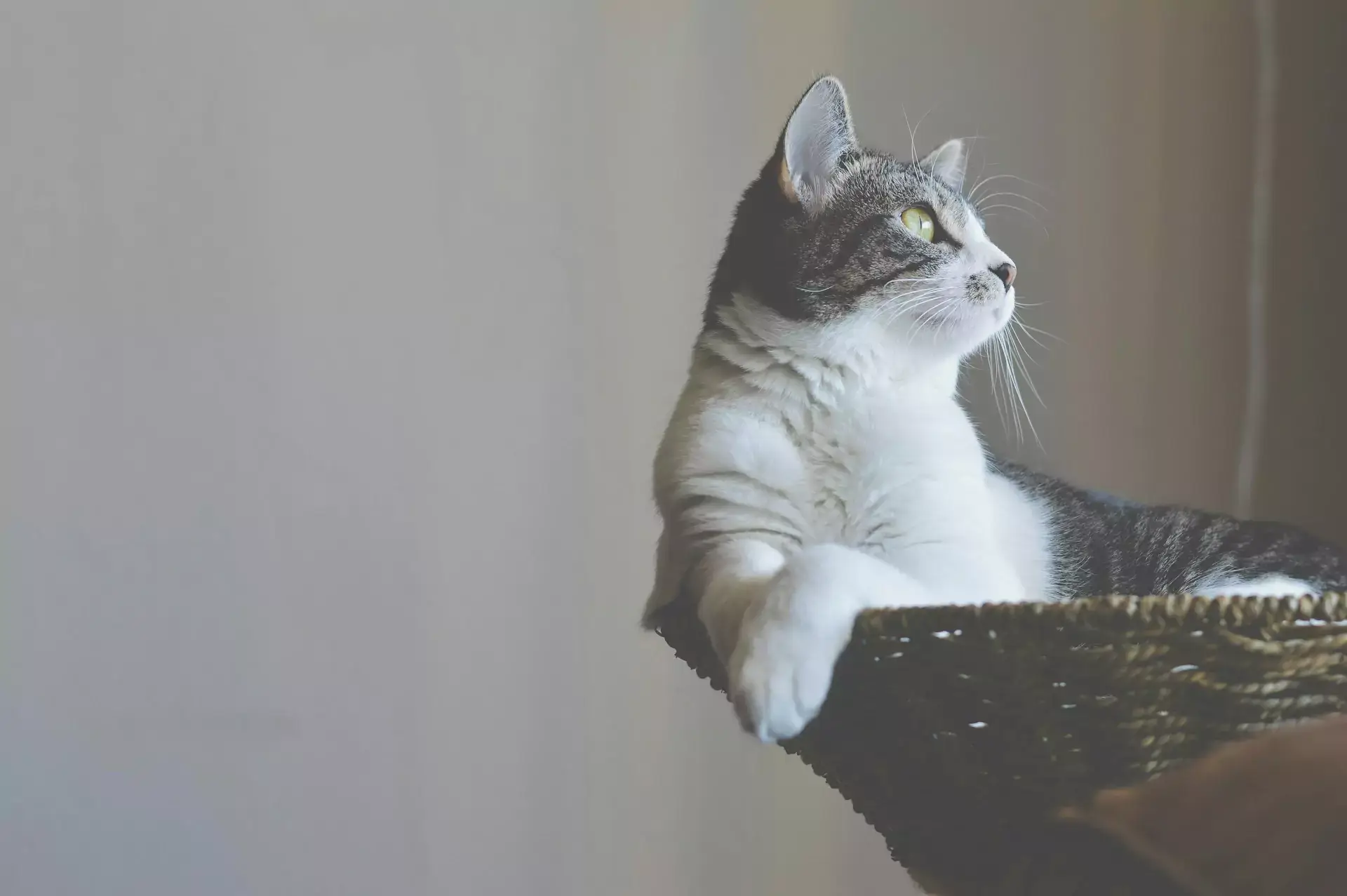This month has gone to the cats! A lot of cat awareness events are happening during February, including Beat the Heat Month, Feline Fix by Five Month, National Prevent a Litter Month, and Spay/Neuter Awareness Month. It’s also National Cat Health Month, which we’ll be focusing on here. While spaying and neutering are very important, they’re just one aspect of keeping your kitty healthy and happy. A Richmond, IN vet discusses some aspects of cat health in this article.
How Can I Tell If My Cat Is Unwell?
Your feline pal may be quite secretive here. It is natural for cats to hide signs of illness. (This is a survival instinct, related to the fact that predators often hone in on weak animals in the wild.) You may not realize your feline friend is ill until she becomes quite sick. It’s important to keep an eye out for warning signs.
Some of the things to watch out for include vomiting, diarrhea, reduced appetite, increased thirst, increased urination, discolored gums, discharge, sudden weight gain or loss, litterbox avoidance, hiding, unusual vocalizations, unkempt fur, respiratory problems, grumpiness, and uncharacteristic behavior.
Keep an eye out for anything unusual. For instance, if your kitty is normally affectionate, she may hide or hiss if she is feeling unwell. On the other hand, a cat who is more aloof may suddenly demand attention. Of course, by unusual, we mean unusual for your cat. It may be perfectly normal for Fluffy to climb your wall or try to eat your wallpaper: some of those adorable cat quirks are just purr for the course!
Contact your Richmond, IN veterinarian if you notice any of these symptoms.
How Can I Keep My Cat Healthy?
As long as you provide Fluffy with good food, fresh water, clean litter, and regular veterinary care, she should remain healthy, happy, and purring.
However, you must take steps to prevent illness and injury. You can protect your kitty best by keeping her safe and sound inside. There are many dangers that threaten outdoor cats, including traffic, weather, stray cats, loose dogs, chemicals, parasites, and, unfortunately, people.
Petproofing is crucial, and is extra important with young, frisky felines. In the wild, our feline overlords are both hunters and prey. These furballs will instinctively practice their mouse-killing skills on, well, anything and everything. Even though that playful streak is adorable, it can also be very dangerous.
Put all potentially-hazardous items out of reach of your cat’s paws in a secure place. Small, sharp objects can pose a risk. That includes things like beads, buttons, craft kit pieces, safety pins, and so on.
Anything ropy or stringy can also be dangerous. Kitties love playing with strings. This is cute, but also dangerous. Unfortunately, if swallowed, these objects can cause serious digestive system problems.
Poisoning is unfortunately not an uncommon issue. Many household items can be harmful to pets! Several popular plants rank highly on this list. Lilies, for instance, can cause kitties to go into organ failure even if they drink a bit of water or nibble a leaf. Visit the ASPCA website here for more information about toxic and non-toxic plants.
Additionally, household products such as cleaners, automotive products, detergents, drain openers, paint, and turpentine can pose a danger to your furry little friend. Consult your Richmond, IN veterinarian for further details.
What Are Some Common Cat Illnesses?
Fluffy may think she is invincible, but she is just as susceptible to illness and injury as any other animal. Some of the most common problems we see in kitties include things like cancer, diabetes, urinary tract infections, skin problems, and thyroid issues. Obesity and parasites can also cause or exacerbate kitty health problems.
Regular veterinary care will not only help Fluffy to avoid illness and injury, but will also increase the chances that something will be caught early if there is an issue.
Can I Check The Health Of My Cat At Home?
Your veterinarian is really the best source for you to determine Fluffy’s health. However, you can monitor her health between appointments by observing her appearance, appetite, and behavior.
Cats should have bright, clear eyes, soft, clean fur, and be alert, curious, and a bit mischievous. They should also breathe quietly … at least, when they’re not meowing at you to demand their fourth breakfast or tell you about the moth in the kitchen.
You can also keep an eye on your pet’s body condition. Whenever you pet Fluffy, hold her, or let her snooze on your lap, check for swelling, bumps, heat, stiffness, bruising, weight gain, or skin problems. Contact your vet immediately if you notice anything amiss.
When Do Aging Kitties Usually Start Having Health Problems?
Kitties usually age slowly and gracefully. HOwever, once Fluffy is around the age of ten or after, you may begin to notice changes. She may start sleeping more and may not be as frisky as she once was. Over time, you may notice her gain weight, and maybe have trouble climbing and jumping.
The jury is still undecided as to what age cats should officially be considered seniors: some say it’s nine, ten, eleven, or 12. According to Cornell Feline Health Center, our feline buddies are considered geriatric at 12 years old. Most sources agree that cats are considered geriatric at 15 years old.
Your veterinarian may recommend more frequent visits when your cat reaches her golden years. Additionally, you may need to adjust Fluffy’s care regimen a little. She may need pet ramps or stairs, and she may need help keeping her fur clean. Your veterinarian can provide more details about special diets. Your pet may also enjoy some senior comforts, like litter boxes with low sides. Ask your vet for specific advice.
How Often Should I Take My Cat To The Richmond, IN Veterinary Clinic?
During the first year, kittens need to come in a few times to complete their vaccinations, begin parasite control, and have spaying/neuter surgery. Microchipping is also recommended.
After that, an appointment schedule will generally be recommended by your veterinarian, based on the age and health of your cat. Indoor cats may only need to visit once a year, whereas outdoor cats may need to visit more often. Senior cats and cats with health problems also require more frequent visits. Of course, you’ll also need to make an appointment right away if you notice anything amiss.
Do Cats Get Stressed?
Kitties are very emotional, and they can experience anxiety, depression, and stress, just like people can. We all know the possible effects of stress on the human body. It’s the same for pets. If Fluffy feels stressed, she may stop eating or cower in a corner. These things can soon take a physical toll. Give your kitty plenty of toys and attention, and make sure she feels safe, comfortable, and maybe even a little spoiled!
Conclusion: Cats are easy to care for, but they are susceptible to illness and injury. Good food, general safety precautions, and proper veterinary care will help you keep your feline friend happy and healthy.
Please feel free to contact us, your Richmond, IN pet hospital, if you have any questions about caring for your kitty.








